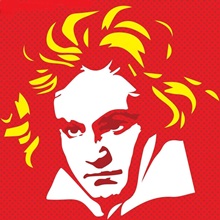 May 26 ~ June 18, 2017
May 26 ~ June 18, 2017
Pre-Festival Prestige Series ~ February 1, May 6, and May 10
The Montreal Chamber Music Festival presents Beethoven: Passion romantique, dedicating its 22nd season to the spirit of Beethoven, the great master who represents the transition from the Classical to the Romantic era. Founder and Artistic Director Denis Brott, C.M. has featured the music of Beethoven on almost all Festival concerts, anchored by the performance of the complete Beethoven string quartets over six concerts by the extraordinary Dover Quartet, who have “enjoyed a “rise to the top [that] looks practically meteoric” (Strings Magazine). Denis Brott comments: “Like no other composer, Beethoven ushered in a new musical language inspired by the French Revolution’s Liberté, Égalité, Fraternité. Beethoven’s remarkable prowess and indomitable spirit has influenced all music since, and his emotional expression and compositional innovation continue to inspire and resonate. The Festival celebrates his genius with gratitude and gusto in 2017.”
This 22nd Festival season, which is preceded by a three-concert “Prestige Series”, features many more extraordinary artists, including superstar Canadian pianist Jan Lisiecki, a world premiere by Yoav Talmi, the Israeli Chamber Project, the Rolston String Quartet, the always-popular jazz series with Rémi Bolduc, Robi Botos, and Natalie MacMaster, and much more. A total of 43 events, at all times of day, fill out the Festival schedule for more concerts, more free events, and more Beethoven than ever before!
PRE-FESTIVAL PRESTIGE SERIES
To open the 2017 season and the Prestige Series, the Festival is thrilled to welcome back close friends, the Emerson String Quartet for a recital on February 1 at 7:30 pm at Salle Bourgie. This unmatched quartet is celebrating its remarkable 40th anniversary season with a delightful program of Mozart’s Quartet No. 15, K.421; Ravel’s Quartet in F Major; and Tchaikovsky’s String Quartet No. 3.
Beethoven Words & Music brings together several of the composer’s chamber works with texts from his journals and letters for a wonderfully intimate evening on Saturday, May 6 at 7:30 pm at Théâtre Paul-Desmarais, Canadian Centre for Architecture. The elegant Israeli pianist Alon Goldstein, who thrilled Festival audiences last season with his performances of Mozart concerti in transcriptions for string quartet, returns alongside violinist Andrew Wan, cellist Denis Brott, and narrators in English and French, Eric Friesen and Julie Payette, respectively.
The final event of the Pre-Festival Prestige Series is Casanova, a theatrical collaboration with Montreal’s Ensemble Caprice on Wednesday, May 10 at 8 pm at Pollack Hall. Acclaimed baritone Michael Volle takes on the persona of the 18th-century Italian adventurer, best known for his legendary womanizing, in an evening featuring music by Mozart, Vivaldi, and Gluck, with soprano Sharon Azrieli Perez.
THE BEETHOVEN STRING QUARTETS: DOVER QUARTET & McGILL LECTURE SERIES
Described by The New Yorker as “the young American string quartet of the moment,” the Dover String Quartet catapulted to attention after sweeping the 2013 Banff International String Quartet Competition, and has quickly become a major presence on the international scene. With its burnished warmth, incisive rhythms, and natural phrasing, the quartet’s sound is “so distinctive as to be identified within mere minutes” (Philadelphia Inquirer). The Dover Quartet will perform the complete Beethoven String Quartet cycle for the Festival, taking place over six concerts, all at Pollack Hall: May 26, 28; June 2, 4, 9, and 11. In partnership with the Festival, McGill’s School of Continuing Education presents a series of bilingual lectures on the Beethoven quartets, directed by Richard Turp with guest speakers including Raffi Armenian, Denis Brott, and Julie Payette.
The Dover Quartet also joins current Banff International String Quartet Competition torch bearers, the Rolston String Quartet for a concert of award winners on Thursday, June 8 at 7:30 pm at Pollack Hall. Music will include Mendelssohn’s famous String Octet, Op. 20 and the Quebec premiere of Quartet No. 1 by Zosha di Castri, which was written for last summer’s Banff competition.
THE ART OF JAN LISIECKI
The Festival is thrilled to present two concerts featuring the spectacular young pianist Jan Lisiecki. Just 21 years-old, Lisiecki has won acclaim around the world for his extraordinary interpretive maturity, distinctive sound, and poetic sensibility. The New York Times has called him “a pianist who makes every note count” while Classic FM, praising his most recent album for Deutsche Grammophon, wrote: “he may be young but Jan Lisiecki plays like a legend.” Jan’s new album of orchestral works by Chopin, with the NDR Elbphilharmonie Orchester, also for Deutsche Grammophon, will be released in March.
On Wednesday, June 14 at 7:30 pm at Pollack Hall, Jan is joined by cellist Denis Brott in a recital of works by Bach, Beethoven, and Chopin. Then, on Friday, June 16 at 7:30 pm, he performs a solo piano programme including works by Beethoven and Chopin, closing with an arrangement for piano and string quintet of Beethoven’s Piano Concerto No. 4 in G Major, with the Festival Strings.
TD JAZZ SERIES – 3 SPECTACULAR SATURDAY NIGHTS
The Festival’s popular TD Jazz Series always brings in tremendous artists from home and away for three fun-filled evenings, and this year is no exception. The three Saturday night concerts all take place at Salle Bourgie, beginning at 7:30 pm.
On June 3, Canadian saxophone icon Rémi Bolduc brings his dazzling virtuosity, refreshing style and magnetic stage presence to the Festival for a new programme: Tribute to George Shearing: Lullaby of Birdland. To salute the legendary pianist, Bolduc brings along a group of outstanding musicians including François Bourassa, piano; Neil Swainson on bass; Pat Labarbera on tenor saxophone, and drummer Rich Irwin, for an unforgettable evening.
Robi Botos is a virtuosic pianist, rooted in everything from Eastern European folk to classical to modern jazz. The Oscar Peterson protégé, and recent Juno winner for “Jazz Album of the Year” for his Movin’ Forward, takes the stage on June 10 with bassist Mike Downes and drummer Larnell Lewis.
To close out the jazz series on June 17, the Festival welcomes beloved Cape Breton fiddler Natalie MacMaster and her quartet. Over the course of 11 record releases, including numerous gold albums, and three decades of performing thousands of live shows, often collaborating with a multitude of world renowned artists, MacMaster has remained true to her traditional and invigorating jigs, reels, and strathspeys, always leaving her audience clapping and hollering for more.
THE ISRAELI CHAMBER PROJECT & TWO PREMIERES
The Israeli Chamber Project comes to the Festival for two concerts at Pollack Hall, both with thrilling premieres. This dynamic ensemble, based in both Israel and New York, comprises strings, winds, and piano, all of them brilliant, prize-winning players. Time Out New York calls them “a band of world-class soloists … in which egos dissolve and players think, breathe and play as one.”
On Tuesday, June 13 at 7:30 pm, clarinettist Tibi Cziger and cellist Michal Korman are highlighted in the Canadian premiere of Shulamit Ran’s Private Game for clarinet and cello. They are joined by pianist Assaff Weisman, violinists Yehonatan Berick and Carmit Zori, and violist Nitai Zori, for works by Bartók, Weber, and Brahms. The concert on Thursday, June 15 at 7:30 pm, features the world premiere of Quintet for Clarinet by acclaimed Israeli conductor, composer, and pianist Yoav Talmi, well-known to Quebec audiences following his 13-year tenure as Artistic Director of the Quebec Symphony. Talmi will be joined by his colleagues including pianist Alon Goldstein in a concert that will include Dvořák’s Slavonic Dances for four hands and Quintet for Piano and Strings No. 2.
MUSICAL INSTRUMENT BANK WINNERS: A CONCERT FOR FAMILIES
The Montreal Chamber Music Festival once again proudly highlights the talents of the next generation of brilliant classical musicians, including the latest crop of winners of the Canada Council’s Musical Instrument Bank. On Sunday, June 18 at 3:00 pm at Pollack Hall, the young musicians will perform a delightful and family- friendly programme, on the exceptional collection of great violins and cellos by such legendary makers as Antonio Stradivarius and Guarnerius del Gesù, valued at over 40 million dollars.
Four different superb violinists, to include Dennis Kim, Timothy Chooi and recent OSM Manulife Competition winner Blake Pouliot, take the lead in the movements of Vivaldi’s Four Seasons, performed with narration and projections. The ensemble will also perform Beethoven’s Quartet No. 11, Op. 95, as arranged for string ensemble by Mahler, and Saint-Saëns’ whimsical favourite, The Carnival of the Animals, narrated by Julie Payette.
NEW AND FREE!
Matinées musicales
Join us for free concerts on Saturday morning June 10 and 17. Coffee and croissants are served starting at 10:30 am at Tanna Schulich Hall, with the 1-hour concerts starting at 11:00 am.
Smartphone Concerts
Keep your smartphone turned on Tuesday, June 13 and Thursday, June 15 from 5:15 – 6pm for our unique concerts in the lobby of Tanna Schulich Hall. Capture the concerts, featuring the young Instrument Bank string players, in your own unique style and post them for an online video competition.
Concerts dans les rues
A series of free noon-hour concerts featuring up-and-coming musicians, at noon each day from Monday, June 12 to Friday, June 16, locations TBC.
Sunday Concerts at Saint Joseph’s Oratory
Free concerts each Sunday during the Festival: May 28, June 4, June 11, and June 18 – all at 3:30 pm. More information at http://www.saint-joseph.org/en/culture/the-music/sunday-concerts/
ALL FESTIVAL TICKETS ON SALE VIA ADMISSION
www.admission.com or 1 855 790-1245 and at all Admission outlets
Tickets for all Festival concerts:
Regular: $ 61.84 / Seniors: $ 51.50 / Students 26 and under: $ 28.50
Children 12 and under, accompanied by an adult: FREE
Taxes and fees included
festivalmontreal.org
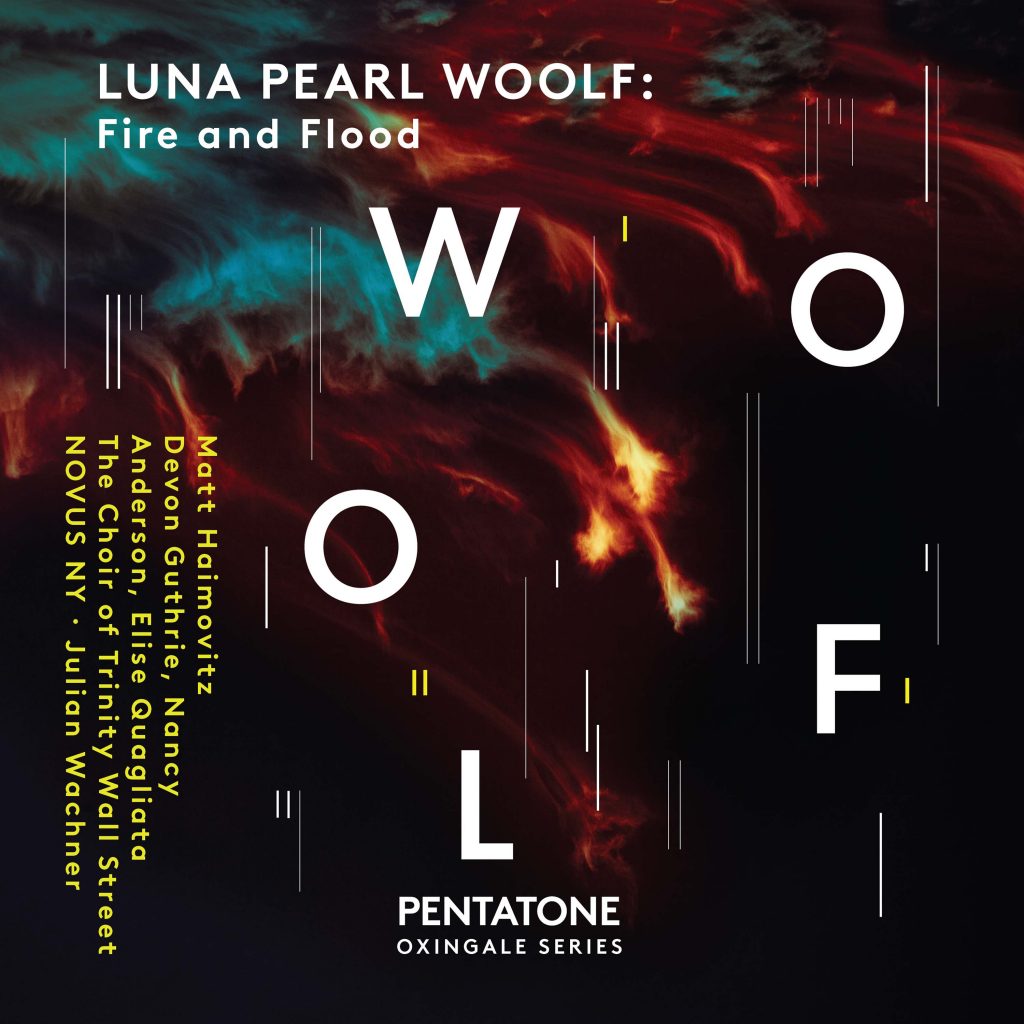
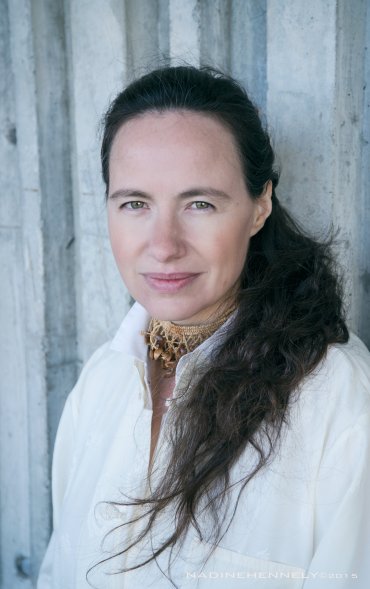

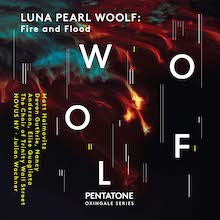
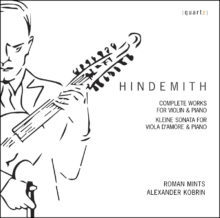
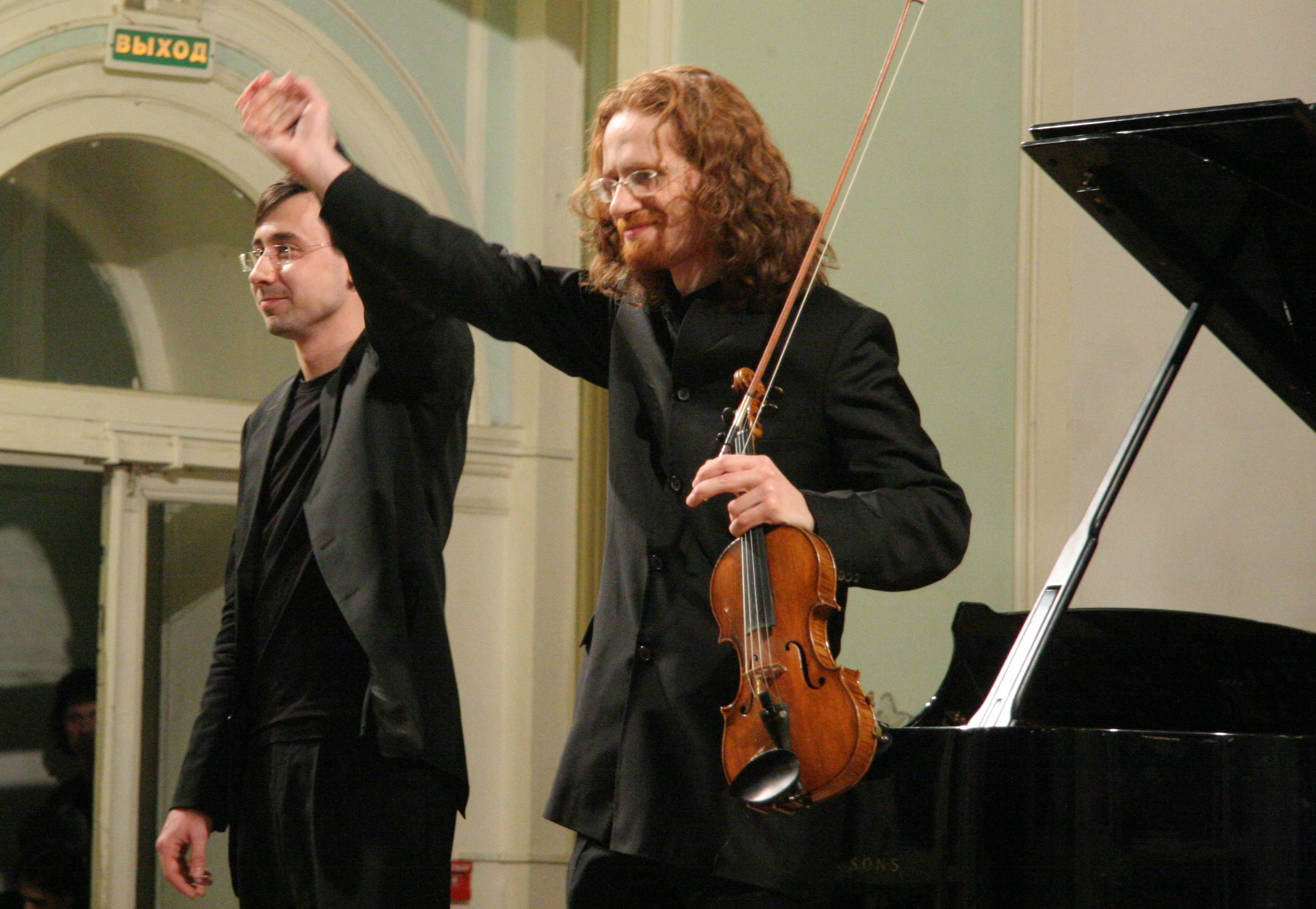 Most recently for Quartz Music, Roman Mints released an album of music by the contemporary Russian composer Leonid Desyatnikov, which received a 5-star review in BBC Music Magazine and Audiophile Audition called “some of the most interesting music you’ve never heard of.” Also for Quartz Music, Roman Mints released an album of works for violin and piano by Alfred Schnittke, which the San Francisco Chronicle called “a thrilling reminder of the eloquence this composer … superb performances from Mints and [Katya] Apekisheva.” The New York Times called his previous release, Dance of Shadows, an innovative program of music by Ysaÿe, Piazzolla, and Schnittke, as well as a premiere by Dobrinka Tabakova “fascinating and technically brilliant,” while Strings Magazine called the recital “a thing of haunting beauty and magic.”
Most recently for Quartz Music, Roman Mints released an album of music by the contemporary Russian composer Leonid Desyatnikov, which received a 5-star review in BBC Music Magazine and Audiophile Audition called “some of the most interesting music you’ve never heard of.” Also for Quartz Music, Roman Mints released an album of works for violin and piano by Alfred Schnittke, which the San Francisco Chronicle called “a thrilling reminder of the eloquence this composer … superb performances from Mints and [Katya] Apekisheva.” The New York Times called his previous release, Dance of Shadows, an innovative program of music by Ysaÿe, Piazzolla, and Schnittke, as well as a premiere by Dobrinka Tabakova “fascinating and technically brilliant,” while Strings Magazine called the recital “a thing of haunting beauty and magic.”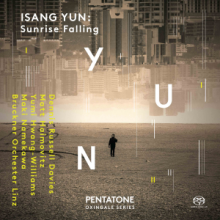
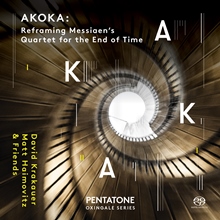
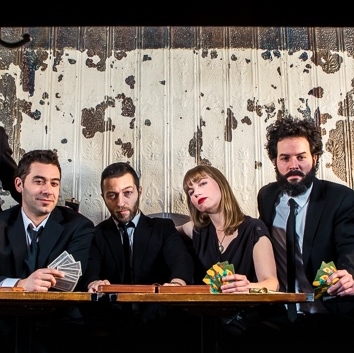
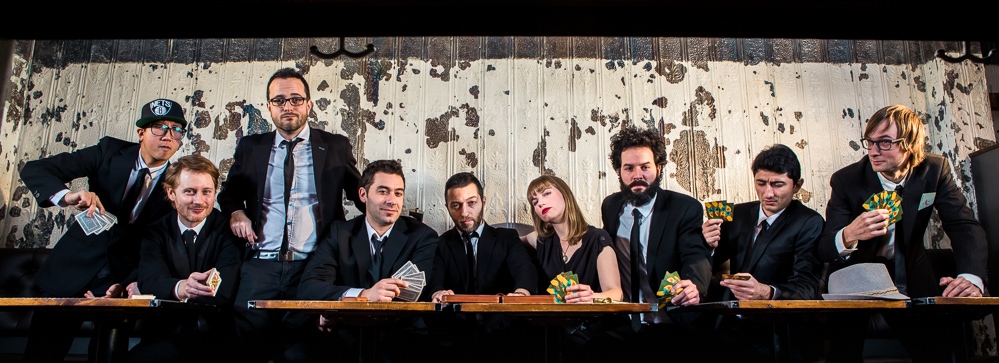 Montreal’s “Dazzling” 9-piece String Band Explores New Territory
Montreal’s “Dazzling” 9-piece String Band Explores New Territory
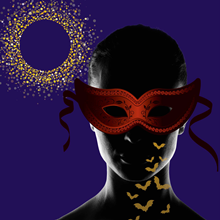
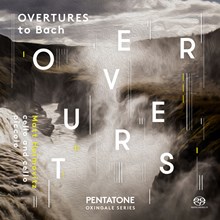
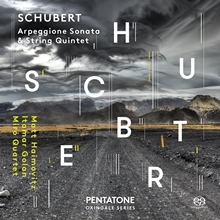
 primephonic, a superior quality classical music platform, designed and developed in the Netherlands by a team of 10 classical music specialists, is now launching in North America. Founded in 2015,
primephonic, a superior quality classical music platform, designed and developed in the Netherlands by a team of 10 classical music specialists, is now launching in North America. Founded in 2015,